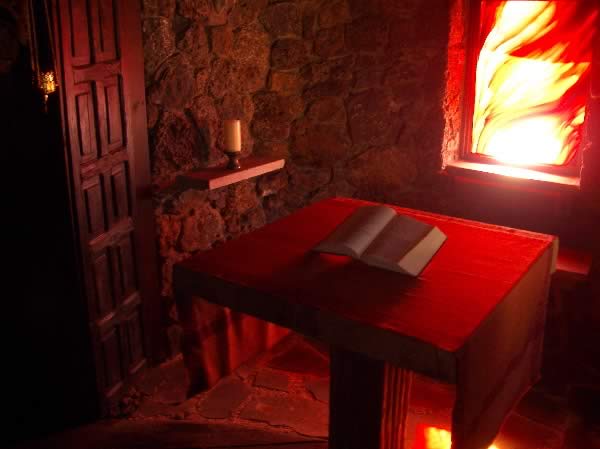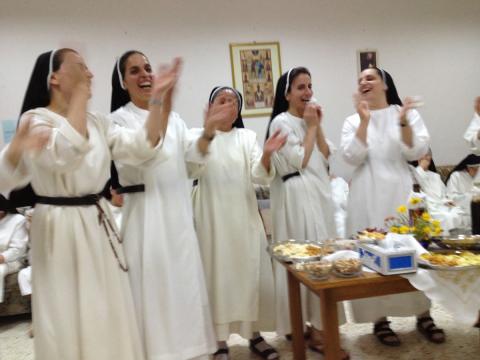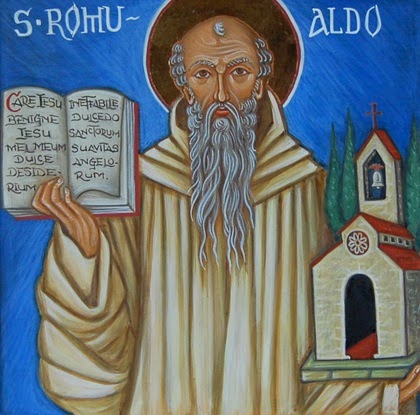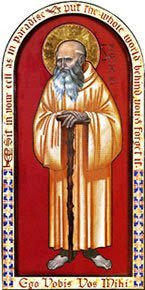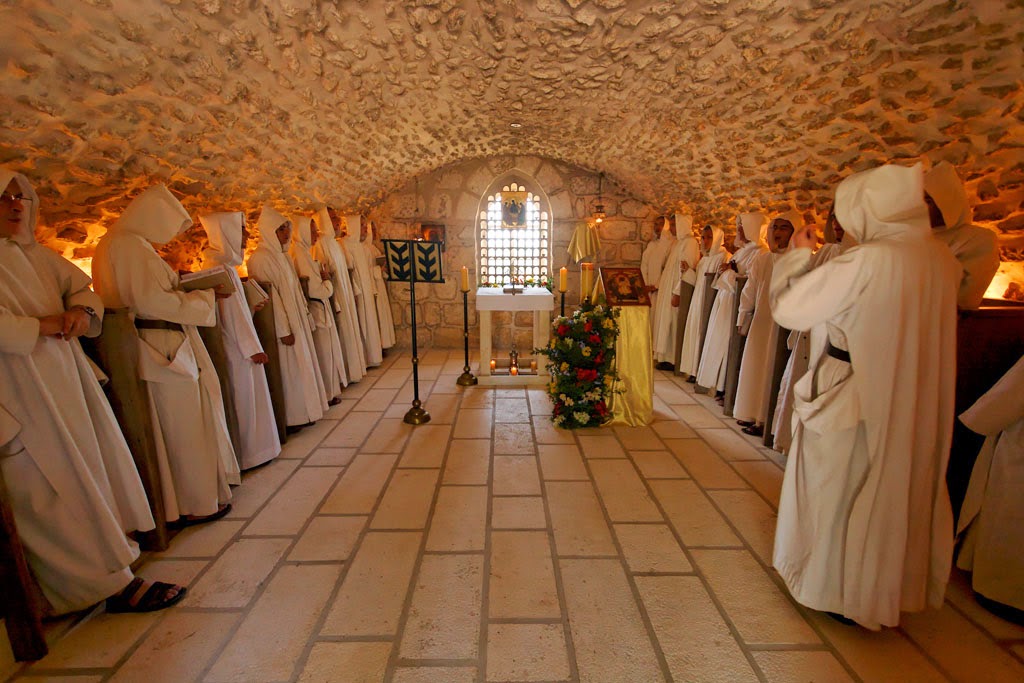Your question is amazingly timely because I have been thinking a lot this entire week about the gift of God which this conviction of how profoundly like others I really am truly is. In my own prayer life and in those experiences I might call "mystical," two gifts in particular have made all the difference in my ability to love and to be a person of genuine hope. The first has to do with a sense that the human heart is that place within us where God always bears witness to Godself, where God reveals Godself moment by moment as ever new and the source of a dynamic newness (and eternity) in us in a way which always transcends and is deeper than any woundedness or personal deficiency by which we might also be marked or marred. When there have been times I felt I could not face another day, when I had the sense that my own brokenness was too profound to be reached by the love of others or to allow me to love them, this sense that God was there within me 1) constituting a part of my very existence which is deeper than any woundedess and 2) calling my name in an unceasing way that created genuine hope for a future both including and transcending all this, was really salvific for me.
 The second gift which is related to this same prayer experience and which has been similarly transformative and lifegiving has been this sense that essentially I am "the same as all the rest of us." There was no striking direct revelation, no "locution" saying, "You are the same as everyone else!" or anything like that which convinced me of this. Instead it was the result of my reflection on the prayer experience I have spoken of here several times now where God was completely delighted to be able to "finally be here with [me] like this" and where I had the sense of having his entire attention.
The second gift which is related to this same prayer experience and which has been similarly transformative and lifegiving has been this sense that essentially I am "the same as all the rest of us." There was no striking direct revelation, no "locution" saying, "You are the same as everyone else!" or anything like that which convinced me of this. Instead it was the result of my reflection on the prayer experience I have spoken of here several times now where God was completely delighted to be able to "finally be here with [me] like this" and where I had the sense of having his entire attention.What was pivotal here was the clear sense I had that 1) my own woundedness was no obstacle to God's delight, 2) that everyone delighted God in precisely this same way and 3) that everyone and everything else had God's entire attention just as I did. For me this became tremendously healing because it meant I was no longer burdened with the mistaken and personally crippling notion that my personal differences set me apart or isolated me from others in ways none of us could really ever overcome. It was this too that, at another point, allowed me to turn the corner on a solitary life rooted in isolation and unhealthy withdrawal and instead embrace one of authentic eremitical solitude and freedom.
For several significant reasons I came into early adulthood feeling that there were differences between myself and others which could never be bridged, much less healed or otherwise obviated. It was not merely that I was gifted in ways others might not have been (though there was some of that too) but instead that I came to realize that on some deep level I had the sense that my very humanity was wounded and changed in a way which could never allow me to truly love or be loved by others. It was as though I had been made different from others on a level that could never be healed or transfigured. While I actually got on well with others, was well-liked (even loved!), did well in studies and ministry, was (rightly) convinced I was called to serve God as a religious, etc, this profound sense of woundedness and "differentness" was a burden which sometimes made every step feel weighted with real sadness and despair --- even when most times that took the form of a kind of resignation and quiet grief or desperation. Whether due to personal giftedness, or deficiencies and woundedness, deep down I had the sense I could never truly embrace the Desert Father Motius' notion that I was the same as everyone else; thus, I also had the sense that authentic humanity, as well as loving and being loved was really forever beyond me.
 And then, along with several other ongoing and supportive experiences of love and care by others, came the prayer experience I have briefly related here several times. It is because of that experience and my own reflection on that and similar but less seminal experiences over the next years that I am able to answer your questions with an assurance even a good theological background specializing in the theology of the cross (which is also VERY important here) might never have have allowed. Here then are those answers (so thanks for your patience). First of all you ask: [[If a person has certain gifts which make her stand apart from others is it really possible for her to affirm that "she is the same as all the rest"? If humility is a form of loving honesty as you have also written here, then is it honest or humble to deny the gifts which make one different from others?]]
And then, along with several other ongoing and supportive experiences of love and care by others, came the prayer experience I have briefly related here several times. It is because of that experience and my own reflection on that and similar but less seminal experiences over the next years that I am able to answer your questions with an assurance even a good theological background specializing in the theology of the cross (which is also VERY important here) might never have have allowed. Here then are those answers (so thanks for your patience). First of all you ask: [[If a person has certain gifts which make her stand apart from others is it really possible for her to affirm that "she is the same as all the rest"? If humility is a form of loving honesty as you have also written here, then is it honest or humble to deny the gifts which make one different from others?]]In the first instance my answer is, yes, provided such a person knows who she is in God, and who others are in God as well. One must come to know oneself on this ultimately deep level, and she must come to know that all other persons --- no matter how different in talents, physical and intellectual abilities, family and psychosocial background, genetic makeup, health, etc, --- are similarly grounded, similarly constituted, similarly called and loved in and by God. The word existence means to stand up out of (ex-istere); we stand up out of God who is the ground of being and meaning. That means that to some extent we are separate from one another in the very fact of our historical existence. However, it also means at a deeper (ultimate) level we are united with one another and all else that is.
In a way all I am saying here is we each share the very same humanity and all the gifts or deficiencies in the world cannot, will not, ever change that. To see reality in this way, to see creation as monastics tell us is the way of REALLY seeing, to see, that is, as GOD SEES is the basis of all of our security, our hope, and our ability to hold and carry both gifts and deficiencies lightly; this means we hold them in ways which do not isolate us from our brothers and sisters. My answer to your second question is that nothing need be denied in us or in others when we see ourselves and others this way. Yes, there will be differences, some of them pretty profound, but none so profound as the similarity and unity we share in God.
 You also asked: [[How does a person come to this kind of humility without denying their gifts? Is this another one of those Christian paradoxes you are so fond of?? Is it important to the kind of hermit you are?]] LOL! Yes, I guess this absolutely is one of those Christian paradoxes I am so delighted by and so very fond of. In fact, it is the very definition of paradox where apparent conflicts are allowed to stand because of a deeper unity in which resolution and even reconciliation is truly found.
You also asked: [[How does a person come to this kind of humility without denying their gifts? Is this another one of those Christian paradoxes you are so fond of?? Is it important to the kind of hermit you are?]] LOL! Yes, I guess this absolutely is one of those Christian paradoxes I am so delighted by and so very fond of. In fact, it is the very definition of paradox where apparent conflicts are allowed to stand because of a deeper unity in which resolution and even reconciliation is truly found.I am not sure I can say much more about how a person comes to this humility. Certainly it is a grace. However, the things in my own life which allowed it include: 1) prayer in which I am loved (and allowed to love) beyond those things which make me either gifted or wounded and deficient in historico-temporal ways, 2) the Gospel of Christ which proclaims in fact that nothing can separate us from the love of God and so, reminds us that there is a deeper sustaining dynamism that is a constantly renewing source of life for us, 3) a faith which allows me to risk changing my mind and heart to embrace these realities and live from them, and 4) all of those people who mentored, taught, directed, pastored, treated, formed, supervised, or were friends to me out of their own faith in this transcendent reality and a belief in the person I most truly was and could be in light of it.
And regarding your final question, in one way and another everything I have written about eremitical life or the spiritual life here on this blog, every article I have published in Review for Religious, and so on, reflects the importance of all of these things for being the kind of hermit I am (not to mention the kinds of hermits I expect others to be as well)! I know first hand what it means to try and use canon 603 or eremitical life more generally to try to merely validate brokenness and isolation, but I also know what it means to live an authentic eremitical life in which these are redeemed and transformed into the silence of solitude and in which canon 603 is allowed to function as the Church really desired and needs it to function.
The same is true of contem-plative and/or mystical prayer. Certainly there are those who use pseudo mystical experiences to exacerbate their isolation and underscore their differentness from others. This is one of the problems which occurs when we focus on the "sensible furnishings" of the experience and fail to transcend these so that the real Wisdom of these experiences can take hold of us, shake us at our very foundations (Tillich), and remake us in mind, heart, and will.
Here is one of the places the work of Ruth Burrows I cited recently is so very important. (cf., On Pentecost, Ruth Burrows, OCD and the Real Experience in Mystical Prayer.) The same is also true of our true and false selves, where the true self is the "spontaneity" (Merton) or Event which is realized whenever the Spirit is allowed to grasp, shake, and transform (make true or verify) us entirely. Again, there is probably very little I have written about here and nothing of real significance that does not in some way owe its very existence to this "paradox" which is the key to understanding my experience in prayer and stands at the heart of all (but especially Christian) existence. Certainly there is nothing authentic in the kind of hermit I am which is not similarly indebted. Even something like the essential hiddenness of this vocation is illuminated by this paradox: cf A Vocation to Extraordinary Ordinariness.
I am very grateful for your question. I don't know what made you look up that old post citing Abba Motius, Should Christians Try to Blend In? but that you did so this week and actually wrote me about it is a terrific gift. Thank you.
